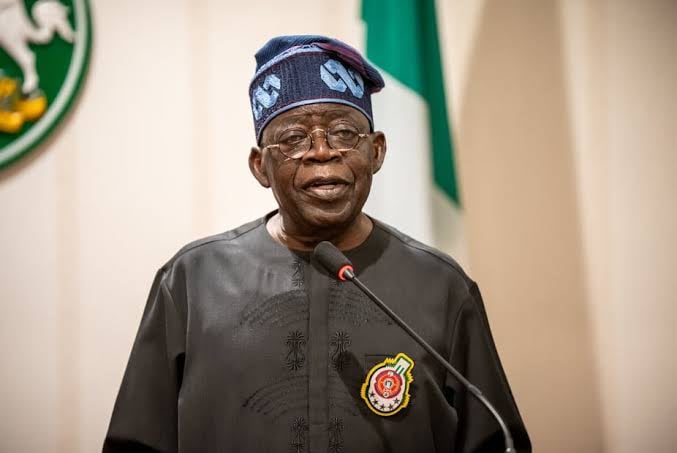
News Investigators/ The Independent Media and Policy Initiative (IMPI has said that the poverty-reduction measures of the President Bola Tinubu administration are more expansive than those of previous administrations, and are consequently more likely to succeed.
In a policy statement signed by its Chairman, Dr Omoniyi Akinsiju, the policy think tank posited that what the federal administration has in place are institutionalized multi-sectoral programmes that are better suited to different categories of people.
According to IMPI, the initiatives are not one-size-fits-all programmes like that of former Presidents Olusegun Obasanjo or Goodluck Jonathan which did little to address the poverty situation at the time.
It said: We note the historical efforts to reduce poverty by various administrations which include direct interventions like the Directorate for Food, Roads and Rural Infrastructures (DFRRI) 1986 – rural areas feeder roads, rural water supply and rural electrification; National Directorate of Employment (NDE) 1986 – unemployed youths training, finance and guidance; and Better Life Programme (BLP) 1987 – rural women self-help and rural development programmes, skill acquisition and health care.
Others are: People’s Bank of Nigeria (PBN) 1989 – encouraging savings and credit facilities for the underprivileged in rural and urban areas; Community Banks (CB) 1990 – micro enterprises in urban areas, banking facilities; Family Support Programme (FSP) 1994 – Health care delivery, child welfare, and youth development for families in rural areas; and Family Economic Advancement Programme (FEAP) 1997 – credit facilities to support the establishment of cottage industries in rural areas (Oladeji and Abiola, 1998).
“There was also the National Poverty Eradication Programme (NAPEP), which was the central pillar of the Obasanjo administration’s poverty eradication programme. Like other programmes before it, it reflected very little on pro-poor schemes, leading to poorly designed money-guzzling schemes like ‘Keke NAPEP’ which hardly contributed to reducing poverty in the long-term.”
IMPI added that the Buhari administration introduced a more detailed approach to fighting poverty which had since been institutionalized
“The Muhammadu Buhari administration profiled a more detailed National Social Investment Programme (NSIP) in 2016 to address poverty and socio-economic inequality. Institutionalised by law in May 2023, NSIP consisted of four core programmes: The N-Power, an initiative to provide job training, education, and stipends to unemployed young Nigerians between the ages of 18 and 35; Government Enterprise and Empowerment Programme (GEEP), a micro-lending programme that provided interest- and collateral-free loans to entrepreneurs and small business owners. It had several sub-initiatives: TraderMoni, which provided small loans to petty traders and artisans. MarketMoni, aimed at market women and FarmerMoni which supported small-scale farmers and agricultural workers.
“Conditional Cash Transfer (CCT) Programme, a social safety net providing a monthly stipend to the most vulnerable and poorest households to help with basic needs, and the National Home-Grown School Feeding Programme (NHGSFP), an initiative aimed at improving school enrolment by providing free, nutritious meals to millions of primary school pupils. It also stimulated the local economy by sourcing ingredients from nearby farmers and engaging community cooks,”it added.
The think tank however posited that the Tinubu administration has adopted a multi-sectoral approach that is better suited to different categories of people as part of efforts to ensure that more Nigerians feel the impact of the ongoing reforms.
“These include subsidized access to dialysis, one of the administration’s poverty reduction programmes which slashes the cost per session from ₦50,000 to ₦12,000. The subsidy is already being implemented in federal hospitals across the six geopolitical zone; agricultural loans and microfinance for farmers and small businesses up to ₦100,000 per beneficiary under FarmerMoni, a scheme designed to support small-scale farmers engaged in poultry, aquaculture, livestock rearing, and crop production and an expanded Home-Grown School Feeding Programme targeted at reaching 20 million children.
“Others are monthly Pension Increase of N32,000 for all retired federal employees under the Contributory Pension Scheme (CPS) from a N758 billion bond approved by President Tinubu; the Tertiary Institutions Staff Support Fund (TISSF) to provide financial support and professional development for staff of tertiary institutions across Nigeria and the Creative Economy Development Fund (CEDF), a scheme under which creative businesses across Nigeria can apply for grants, loans,etc etc and equity investments up to $100,000 to scale their operations.
“There is also a new national skills programme aimed at connecting 20 million young Nigerians to jobs, training, and entrepreneurship opportunities by 2030; a World Bank-supported vocational programme known as Innovation Development and Effectiveness in Acquisition of Skills (IDEAS) domiciled in the education ministry to train 30,000 youths in 36 skill areas as well as cash transfer for 15 million vulnerable Nigerians and their families and Digital Access and Livelihood Initiative (DALI), a demand-driven national talent pipeline designed to link foundational and work-readiness training directly to guaranteed jobs or enterprise pathways.”
IMPI added that its analysts identified that multi-dimensional poverty is caused by several factors and could only be reduced through a multi-pronged policy approach.